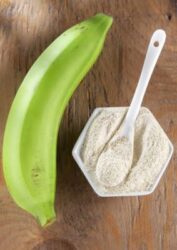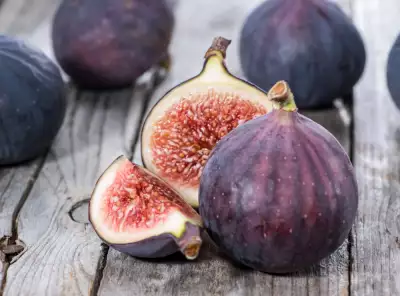Is Pineapple Good For Gastritis? All You Need To Know
Are you tired of the constant pain that comes with gastritis? Do you think pineapple could help with these symptoms? What you need to know about pineapple and gastritis is provided below.
The excruciating symptoms of gastroitis include nausea, vomiting, indigestion, and stomach discomfort. Although there is no known treatment for the illness, many patients have looked into complementary therapies in an effort to find symptom relief. The use of pineapple as a treatment for gastritis is one alternative that has received some attention, but is it effective? In this article, we will examine some of the potential health advantages of cucumbers and determine whether they are actually beneficial for pineapple.
What is Gastritis?
Gastritis is a common condition characterized by inflammation of the stomach lining. It can cause symptoms such as nausea, vomiting, abdominal pain, and bloating. While there are various causes of gastritis, including bacterial infections, certain medications, and alcohol consumption, diet can also play a role in the development and management of the condition.
Pineapple is a tropical fruit known for its sweet and tangy taste, as well as its numerous health benefits. It contains a variety of vitamins, minerals, and antioxidants that can support digestive health and reduce inflammation throughout the body. In recent years, there has been growing interest in the potential benefits of pineapple for gastritis. In this article, we will explore the science behind this claim and provide insights into whether pineapple can be considered a beneficial addition to a gastritis diet
Also Read: Is Coconut Water Good for Gastritis?
Nutritional Benefits of Pineapple for Gastritis
Pineapple is a rich source of various vitamins, minerals, and enzymes that can support digestive health and reduce inflammation, making it potentially beneficial for those with gastritis. Here are some of the nutritional benefits of pineapple:
- Vitamin C: Pineapple is a good source of vitamin C, an antioxidant that can help reduce inflammation and promote healing in the stomach lining.
- Bromelain: Pineapple contains bromelain, a group of digestive enzymes that can break down proteins and aid in digestion. Bromelain also has anti-inflammatory properties and can help reduce inflammation in the stomach lining.
- Fiber: Pineapple is a good source of fiber, which can promote regular bowel movements and improve digestive health.
- Potassium: Pineapple is high in potassium, a mineral that can help regulate blood pressure and reduce the risk of heart disease.
- Manganese: Pineapple is a good source of manganese, a mineral that plays a role in several metabolic processes, including the formation of connective tissue and bone health
Also Read: Are kiwi Fruits Acidic or Alkaline
Pineapple Enzymes and Digestive Health
Pineapple contains a group of digestive enzymes called bromelain, which can help break down proteins and aid in digestion. Here are some ways in which pineapple enzymes can promote digestive health:
- Protein digestion: Bromelain can help break down protein molecules into smaller peptides and amino acids, which can be more easily absorbed by the body. This can be particularly beneficial for people with gastritis who may have difficulty digesting certain types of protein.
- Anti-inflammatory properties: In addition to aiding in digestion, bromelain also has anti-inflammatory properties that can help reduce inflammation in the gut and promote healing.
- Bloating and gas: Pineapple enzymes may also help reduce bloating and gas by breaking down complex carbohydrates and other indigestible compounds in the gut.
- Gut microbiota: Pineapple enzymes may help promote the growth of beneficial gut bacteria, which can have a positive impact on digestive health.
- Irritable bowel syndrome (IBS): Some research suggests that bromelain may be beneficial for people with IBS, a common digestive disorder characterized by abdominal pain, bloating, and changes in bowel habits.
While pineapple can be a beneficial addition to a gastritis diet, there are some precautions that should be taken when incorporating it into your meals. Here are some important things to keep in mind:
Research on Pineapple’s Effects on Gastritis Symptoms
There is limited research on the specific effects of pineapple on gastritis symptoms. However, some studies have explored the potential benefits of pineapple and its components on related conditions, such as inflammatory bowel disease (IBD) and peptic ulcer disease (PUD), which may provide some insight into its effects on gastritis. Here are some examples:
- Peptic ulcer disease: A study published in the Journal of Pineal Research found that a combination of pineapple juice and honey was effective in reducing the symptoms of peptic ulcer disease in rats. The researchers attributed this to the anti-inflammatory and antioxidant properties of pineapple and honey.
- Inflammatory bowel disease: A study published in the Journal of Medicinal Food found that bromelain, the digestive enzyme found in pineapple, was effective in reducing inflammation in mice with colitis, a type of inflammatory bowel disease. The researchers noted that bromelain may be beneficial for people with IBD due to its anti-inflammatory properties.
- Gastric cancer: A study published in the journal Molecules found that a compound called kaempferol, which is found in pineapple, had anti-inflammatory and anti-cancer effects in human gastric cancer cells. While not directly related to gastritis, this study suggests that the anti-inflammatory properties of pineapple may have potential benefits for stomach health.
Also Read: is it good to Eat Pineapple at night?
Incorporating Pineapple into Your Gastritis Diet
If you have gastritis, it is important to consult with a healthcare professional before making any significant changes to your diet. However, if you have the go-ahead to incorporate pineapple into your gastritis diet, here are some tips to help you do so:
- Choose fresh pineapple: Fresh pineapple contains more enzymes and nutrients than canned or processed pineapple. When choosing a fresh pineapple, look for one that is ripe and has a sweet fragrance.
- Limit your intake: While pineapple can be beneficial for digestive health, it is also high in natural sugars and acidity, which can exacerbate symptoms of gastritis in some people. Therefore, it is important to limit your intake and monitor your symptoms.
- Consider incorporating pineapple into smoothies: If you have difficulty digesting solid foods, incorporating pineapple into a smoothie with other digestive-friendly ingredients, such as ginger and spinach, may be a good option.
- Pair with other gastritis-friendly foods: Pairing pineapple with other gastritis-friendly foods, such as lean proteins, whole grains, and non-acidic fruits and vegetables, can help create a well-rounded meal that is gentle on the stomach.
- Avoid processed or sugary pineapple products: Processed pineapple products, such as canned pineapple and pineapple juice, may contain added sugars and preservatives that can exacerbate gastritis symptoms. It is best to avoid these products and opt for fresh pineapple instead.
Precautions When Incorporating Pineapple for Gastritis
While pineapple can be a beneficial addition to a gastritis diet, there are some precautions that should be taken when incorporating it into your meals. Here are some important things to keep in mind:
- Avoid pineapple if you are allergic: If you have a known allergy to pineapple, avoid incorporating it into your gastritis diet.
- Consume in moderation: Pineapple is high in fiber and contains a lot of natural sugar, so it is important to consume it in moderation to avoid digestive discomfort.
- Avoid canned pineapple: Canned pineapple often contains added sugars and preservatives, which can be irritating to the stomach. Fresh pineapple is the best option.
- Avoid pineapple juice: Pineapple juice may be high in sugar and acidic, which can exacerbate gastritis symptoms.
- Consult with your doctor: If you have any concerns about incorporating pineapple into your gastritis diet, it is important to consult with your doctor or a registered dietitian. They can provide personalized advice based on your specific health needs.
Also Read: Is Lemonade Good For Gastritis?
Ways to Incorporate Pineapple into Your Gastritis Diet
Incorporating pineapple into your gastritis diet can add a delicious and nutritious twist to your meals. Here are some ideas on how to incorporate pineapple into your diet:
- Fresh Pineapple: Fresh pineapple is a great snack option or can be added to fruit salads or smoothies.
- Grilled Pineapple: Grilled pineapple is a tasty addition to savory dishes such as grilled chicken or fish.
- Pineapple Salsa: Pineapple salsa is a refreshing and flavorful addition to grilled meats or as a dip for whole grain tortilla chips.
- Pineapple Smoothie: Blend fresh pineapple with Greek yogurt and almond milk for a delicious and nutritious smoothie.
- Pineapple Salad Dressing: Mix fresh pineapple juice, olive oil, and apple cider vinegar for a tasty and tangy salad dressing.
Remember to consume pineapple in moderation and be mindful of any gastrointestinal symptoms. If you experience any discomfort or worsening of symptoms, talk to your doctor.
Sample Menu Plan with Pineapple
Here’s a sample menu plan for a day that incorporates pineapple into your gastritis diet:
Breakfast:
- Greek yogurt with fresh pineapple and granola
- Green tea or chamomile tea
Snack:
- Fresh pineapple slices with almond butter
Lunch:
- Grilled chicken and pineapple skewers
- Quinoa salad with mixed greens, diced pineapple, avocado, and a citrus dressing
- Water with lemon or lime
Snack:
- Smoothie made with fresh pineapple, almond milk, and spinach
Dinner:
- Baked salmon with a side of grilled pineapple rings
- Roasted sweet potatoes
- Water with cucumber slices
Remember to listen to your body and adjust portion sizes as needed. If you have any concerns or questions, consult with your doctor or a registered dietitian for personalized advice.
Also Read: Are Figs Good For Gastritis? All you should know
Precautions and Potential Risks of Consuming Pineapple with Gastritis
While pineapple can be beneficial for some people with gastritis, there are also potential risks and precautions to keep in mind. Here are some important considerations:
- Pineapple may aggravate symptoms in some people: Pineapple is high in natural sugars and acidity, which can exacerbate symptoms of gastritis in some people. If you experience increased stomach pain, bloating, or other symptoms after consuming pineapple, it may be best to avoid it.
- Bromelain may cause digestive discomfort: While the enzymes in pineapple, particularly bromelain, can aid in digestion, they may also cause digestive discomfort in some people. This may include bloating, gas, and diarrhea. If you experience these symptoms after consuming pineapple, it may be best to avoid it or limit your intake.
- Interactions with medications: Pineapple may interact with certain medications, such as blood thinners, antibiotics, and some antidepressants. If you are taking any medications, it is important to consult with a healthcare professional before consuming pineapple or any other new foods.
- Allergies: Some people may be allergic to pineapple, which can cause symptoms such as itching, hives, and difficulty breathing. If you experience these symptoms after consuming pineapple, seek medical attention immediately.
- Precautions for pregnant and breastfeeding women: Pineapple contains bromelain, which may have blood-thinning properties and may also cause uterine contractions. Pregnant and breastfeeding women should consult with a healthcare professional before consuming pineapple to determine if it is safe for them.
Overall, while pineapple can be a healthy addition to a gastritis diet for some people, it is important to be aware of potential risks and precautions. It is always best to consult with a healthcare professional before making any significant changes to your diet.
Conclusion: Is Pineapple Good for Gastritis?
In conclusion, pineapple can be a beneficial addition to a gastritis diet for some individuals due to its anti-inflammatory properties, digestive enzymes, and nutrient content. However, it is important to be mindful of potential risks and precautions, such as its natural sugars and acidity, the potential for digestive discomfort or allergies, and interactions with certain medications. Therefore, it is always best to consult with a healthcare professional before incorporating pineapple or any other new foods into your diet.
Also Read: Is Kiwi Fruit Good For Gastritis? All you should know
Frequently Asked questions
Sure, I can help answer some frequently asked questions about gastritis and pineapple:
What are the common symptoms of gastritis?
The common symptoms of gastritis include abdominal pain, bloating, nausea, vomiting, indigestion, loss of appetite, and a feeling of fullness after eating.
What are the causes of gastritis?
Gastritis can be caused by several factors, including bacterial infections (such as H. pylori), excessive alcohol consumption, long-term use of nonsteroidal anti-inflammatory drugs (NSAIDs), stress, and autoimmune disorders.
How can gastritis be treated?
Treatment for gastritis depends on the underlying cause. In some cases, changes in diet and lifestyle may be enough to alleviate symptoms. In other cases, medications such as antacids, proton pump inhibitors, and antibiotics may be prescribed.
Is pineapple a good food to eat for gastritis?
Yes, pineapple can be a good food to eat for gastritis. Pineapple contains bromelain, vitamin C, fiber, and digestive enzymes that can help soothe inflammation, improve digestion, and alleviate symptoms of gastritis.
Can pineapple juice worsen gastritis symptoms?
It depends. While pineapple juice can be a good drink for people with gastritis, some people may find that acidic foods and drinks (including pineapple juice) can worsen their symptoms. It’s important to listen to your body and avoid foods and drinks that cause discomfort.
How much pineapple should I eat to treat gastritis?
There is no specific recommendation for how much pineapple to eat to treat gastritis. However, incorporating pineapple into a balanced diet can provide several health benefits and help manage symptoms of gastritis. It’s important to speak with a healthcare provider before making any major changes to your diet or lifestyle.


